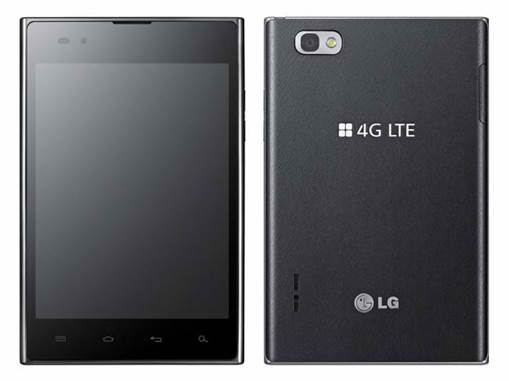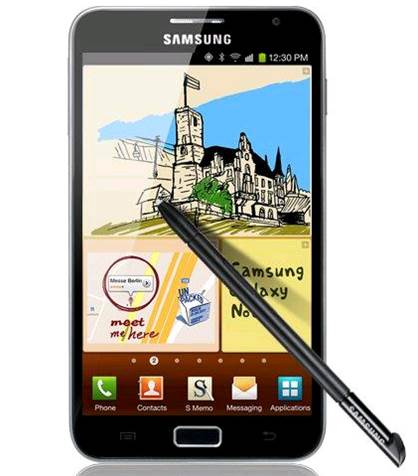Camera
The leaf (Intuition) did not live far apart
from the tree (Optimus Vu) with its camera: both devices make use of 8MP and
1.3MP sensors in the rear and in the front, respectively, and both can record
video up to 1080p resolution. They both provide the same array of settings:
ISO, white balance, color effect, quite a lot of scene modes and brightness
adjustments. Panorama is also available, but HDR capabilities are not found. We
also felt sad because we could not hold down the shutter button to lock
exposure/ focus. We captured the images with the Intuition, Optimus Vu and
Samsung Galaxy Note (AT&T’s version, upgraded to ICS) side by side and the
two LG devices provide nearly the same volume of detail, although there were a
few images in which the Intuition was superior to the Vu with the slightly
better color saturation and dynamic range. However, neither one was able to be
on a par with the 8MP sensor on the Galaxy Note – the Samsung phones took
pictures with more saturated and realistic colors (the LG seemed to be more
diluted color) and was the definite winner in dynamic range. It has done better
in the close-up images. For daytime shots, the Intuition’s camera is not really
bad - it is not just competitive with its phablet rival.

The
leaf (Intuition) did not live far apart from the tree (Optimus Vu) with its
camera: both devices make use of 8MP and 1.3MP sensors in the rear and in the
front respectively, and both can record video up to 1080p resolution.
Although it is quite a good camera during
the day, we cannot suppose that it is the same about the performance at night -
or in any low-light conditions. In addition to capturing grainy and noisy
images in these situations, it cannot get enough backlight to do anything well
- even when the settings are changed to night mode. The LED flash, while bright
enough, could have been a little better if the camera used the light to focus
before shooting the final image.
If you are hoping for better performance
from the video recording, you will be extremely frustrated. Again, the 1080p HD
quality is on par with the quality of the Optimus Vu in which we find it
difficult to call it high-definition. While the Intuition did a good job of
recording the motion, it was incredibly grainy regardless of what time of day
the scene was being recorded. We even saw the camcorder occasionally lost
focus. Sound was also below average, because some of the films we heard seemed
to be a bit stuffy. The results at 720p were similar, so it is wise to only
select the lower- resolution setting to conserve storage space.

An
LG Intuition sample shot
Performance and battery life
We have noticed that a major category has
been the subject of many legends and embarrassment: the SoC. The original
Optimus Vu has a 5GHz dual-core Snapdragon S3 MSM8660 processor combined with an
Adreno 220 GPU, and there have been many of rumors that the Intuition was
upgraded to an S4. (No official specification sheets make sure for that). We
would not be greatly surprised if this was true - even the Optimus Vu itself
reinforced up to a quad-core Tegra 3 over the period of time. Unfortunately,
that's not the LG Intuition. The answer was not really easy to find, regardless
of surfing the countless system diagnostic tests, we were unable to
definitively answer the precise chipset used. Instead, each test told us the
same thing: the Intuition has an MSM8x60 chip. The missing number is rather
important to solve the S3/S4 puzzle, but we also found that the phone employs
an Adreno 220 GPU – the graphical processor is opted for the S3 chips. Indeed,
what we have here is the MSM8660; the same 45nm piece of silicon was present in
the first-generation Optimus Vu in addition to the HTC Rezound, EVO 3D and the
AT& T’s version of the Samsung Galaxy Note. In other words, the Intuition
is on par with the high-end phones.
Of course, this fact resulted in initially
assuming that the performance of the two phones would be nearly identical.
After all, both of the phones have more similarities than differences. Let’s
take a quick look at the tests to see how they perform. To compare with the
devices that have equivalent specifications, we also added to the AT&T’s
Galaxy Note.
LG
Intuition
·
Quadrant: 3,648
·
SunSpider 0.9.1 (ms): 2,214
·
Vellamo (v1.0): 1,383
·
GLBenchmark Egypt Offscreen (fps): 32
·
CF-Bench: 6,168
·
AnTuTu: 6,841

LG
Intuition
LG Optimus Vu
·
Quadrant: 2,990
·
SunSpider 0.9.1 (ms): 2,339
·
Vellamo (v1.0): 963
·
GLBenchmark Egypt Offscreen (fps): 34
·
CF-Bench: 6,021
·
AnTuTu: 6,588

LG
Optimus Vu
Samsung Galaxy Note (AT&T)
·
Quadrant: 3,735
·
SunSpider 0.9.1 (ms): 2,665
·
Vellamo (v1.0): 1,328
·
GLBenchmark Egypt Offscreen (fps): 34
·
CF-Bench: 6,506
·
AnTuTu: 6,628

Samsung
Galaxy Note (AT&T)